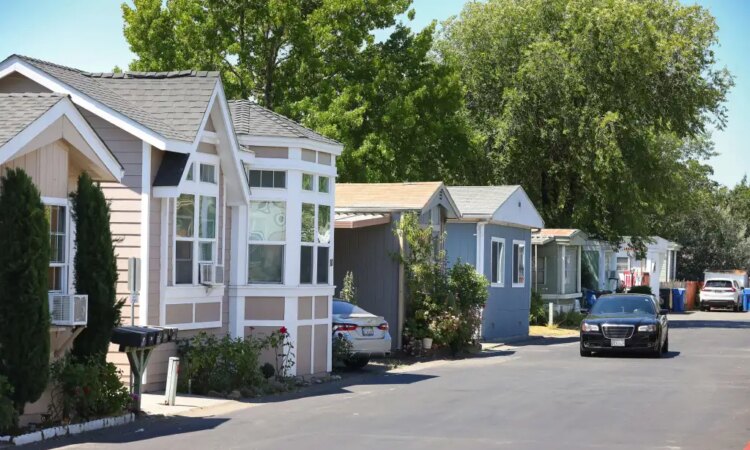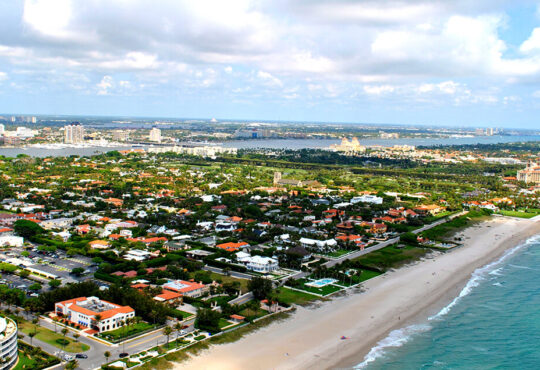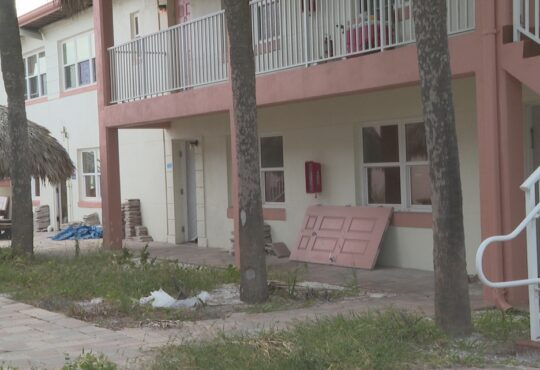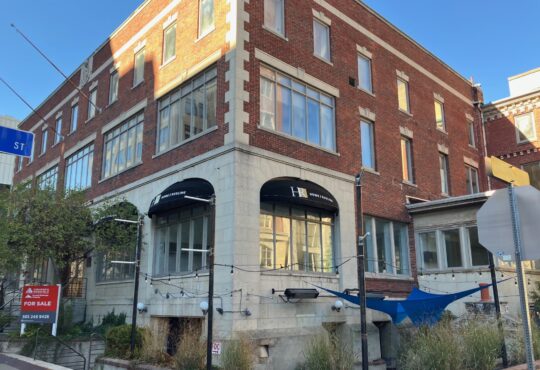
Mobile home park owners filed separate federal civil rights lawsuits Wednesday against the town of Windsor and the city of Petaluma, alleging municipal regulations governing park closures and rent increases illegally infringed on their property rights.
Members of the Ubaldi family own both Evergreen Mobile Estates in Windsor and Capri Mobile Villa in Petaluma, as well as a four additional parks in Sonoma County and more than a dozen others in California.
They are challenging a recent temporary moratorium on park closures in Windsor and rules in Petaluma that block ownership from raising or negotiating higher rents in certain situations.
Both lawsuits tie into a larger regional and statewide fight over mobile home park regulations imposed by local governments as a way to protect tenants, many of them older and on fixed incomes, and preserve a last bastion of affordable housing.
In the past couple of years, Sonoma County cities have approved a wave of updates to decades-old protections for mobile home residents, especially limiting increases on rent paid for the ground beneath their homes. The moves have come amid a surge of grassroots activism by mobile home tenants who have felt pushed to the brink by rising costs.
But park owners have argued the new rules are an existential threat to their businesses.
“The economics are very simple,” said Nick Ubaldi, a key voice in the pushback by park owners. He also works for Harmony Communities, the company that manages Ubaldi properties as part of a portfolio of more than 30 mobile home parks in California and Oregon. “If a business can’t keep pace with inflation, it will go bankrupt at some point.”
Local regs a testing ground
A flurry of lawsuits, multi-hundred-dollar rent increases and park closure announcements have made Sonoma County a testing ground for these new regulations.
Mobile homes are governed by different state and local laws than other housing, with a host of rules that lay out processes to petition for and challenge higher rents and dictate special requirements to close a park. Those steps include analyzing the impacts of closure on residents and providing relocation assistance.
In June, residents of the 23 mobile homes at Evergreen in Windsor received notice that owners were considering closing the park, setting off a wave of panic and confusion. In response, town council members passed an urgency ordinance earlier this month, putting a 45-day moratorium on park closures while staff considers what changes, if any, to make to its regulations.
Windsor is also home to three other mobile home parks with roughly 550 spaces in all.
The Ubaldis are challenging the legality of the moratorium, saying it conflicts with their constitutional rights as property owners, including any decision to “exit the business,” according to their Oct. 22 complaint.
Windsor “has run roughshod over Evergreen’s rights,” imposing regulations that deprive “Evergreen of a fair return on investment” on the one hand, and then making “it purportedly illegal for the park to go out of business,” the complaint states.
The moratorium only extends a few more weeks and was characterized by supporters as providing much needed “breathing room” to residents, but Ubaldi said legal action was necessary because “temporary is always temporary until it’s not.”
Windsor Town Manager Jon Davis and Petaluma City Attorney Eric Danly both said they were still evaluating the respective lawsuits and declined to comment.
Rent increase limits in question
In Petaluma, the Ubaldi lawsuit targets recent tweaks to laws city leaders approved to close loopholes that undermined the intent of protections already in place. The added provisions sought to block one way park owners raised rents to market rate upon turnover of a mobile home space.
That move in particular has been a sore spot for park owners, who see it as a compromise avenue to recoup lost revenue. They also argue that the appeal of lower rents drives up the price of mobile home units when they’re put up for sale, ultimately undermining affordability.
“If you’re going to keep rents below-market for decades, there has to be a safety valve at some point,” Nick Ubaldi said.
But residents and advocates have cast doubt on park owners’ claims of financial distress, pointing to an industry they say prioritizes profits over people. Investors continue to purchase mobile home parks for millions of dollars, they note, including Capri in Petaluma, which was sold to the Ubaldi ownership group in 2024 for a reported $4.25 million.
Residents and their allies have also emphasized the precarious position of renting land under owned homes that cannot easily be moved.
Weathering the larger regulatory battle has taken a deep emotional toll on many residents, most with few resources and some who face language barriers in navigating the process. Again and again, mobile home owners in Petaluma and elsewhere have reported harassment and retaliation and threats of eviction.
With the most stringent protections in the county and a particularly contentious relationship between officials and park owners, Petaluma has been ground zero for much of the fight so far.
In a message to the Petaluma City Council ahead of the last mobile home updates in August, Harmony Communities Founder Matthew Davies accused officials of enacting local regulations “that appear enacted simply to put park owners out of business.”
“I have received over $3,000,000 in commitments from park owners across the state to challenge every aspect of this ordinance and to continue litigating with the city on the myriad issues for the next five years,” he said in his email.
“I am told that park owners will gladly contribute more as needed,” the email said. “At some point, the city will be draining its general fund…You depend on us to provide housing, yet you continue to go to war with us rather than listen to our reasonable requests.”
The new pair of lawsuits are just the latest court challenges filed by park owners and their associations over local and state laws in Sonoma County superior and federal court. Some of those cases are still in litigation. Some others have been dismissed in whole or in part.
At the state level, one Sonoma County park owner is part of a group that sued over a 2020 California law that now prevents long-term leases from being exempt from local rent control rules. A judge denied an injunction in December, but the case is ongoing.
At Capri, off N McDowell Boulevard, such leases have been a point of controversy.
Down the street, at Youngstown Mobile Home Park, owners sued Petaluma over its local ordinance and the city is countersuing for a failure to comply with new rules.
Meanwhile, park owners in Petaluma have triggered at least seven arbitrations, a lengthy and costly process for all involved where ownership makes their case for why a rent hike above legal limits is necessary to make a fair return. Petaluma mobile home residents have so far successfully defended against the increases in all but one case, where owners were awarded a $118 per month bump, still just over 10% of what they were asking.
“They can’t win legitimately so they’re trying to bully you or bury you in legal fees,” said Jodi Johnson, a resident of Petaluma’s Youngstown park who has become a leader of advocacy efforts in Sonoma County.
“They’re trying to wear us down, and it is a financial, a mental, an emotional” drain, she said, “but I have to say that the resident advocacy and arbitration and legal results and support the fact that they don’t deserve what they’re asking for.”
She pointed to wins in the state Legislature, too, where Gov. Gavin Newsom recently signed two bills put forward by Assembly member Damon Connolly, D-San Rafael, that local advocates lobbied for. “They want to bully people into submission, and it’s not happening, and they don’t like that,” Johnson said.
But Ubaldi says the burden of local regulations and stonewalling by municipal officials have prevented opportunities for compromise, particularly in Petaluma.
“We’ve offered off-ramp after off-ramp,” he said. Now, park owners “don’t have any other recourse.”
“We are clearly backed into a corner. There is no other avenue,” he said. “What are our options other than litigation?”
In addition to lawsuits in Petaluma and Windsor, another park Ubaldi’s family owns, Countryside Mobile Home Park, has sued the city of Cotati over one of its mobile home laws. Ownership also started the process to look into shuttering the park there. At the same time, arbitration hearings on a rent hike request that residents say many simply cannot afford wrapped up Oct. 21. Some Countryside mobile home owners have been trying to negotiate a purchase of the park.
On Thursday, Windsor officials put out notice that at its Nov. 5 meeting, the town council will consider extending its park closure moratorium.
You can reach senior reporter Marisa Endicott at 707-521-5470 or marisa.endicott@pressdemocrat.com. On X (formerly Twitter) @marisaendicott and Facebook @InYourCornerTPD.
Originally Published:






